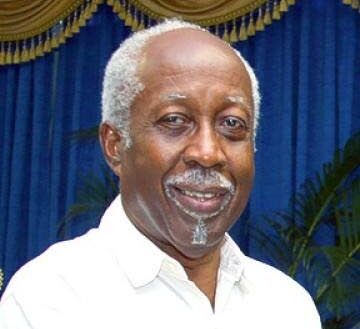Transparency or opacity?

Reginald Dumas
THE TT Transparency Institute (TTTI) has issued a media release on the occasion of the 25th anniversary of its establishment in 1998. The release says in part that, at my invitation, representatives of Transparency International (TI), the parent body, had paid an exploratory visit to TT the previous year, 1997, and that that visit had led to the founding of TTTI.
Yes, I had taken it on myself to approach TI in Berlin direct. I was tired of hearing allegations and charges – no evidence, of course – of corruption in TT with no action being taken by anyone. Why is it we are so skilled, on the one hand, at venting and criticising and backstabbing, and, on the other, at simultaneously shying away from taking, or even seeking, corrective measures? I had had enough. Talk was fine, but something had to be done. I decided I would act on my own.
Computers and cell phones and Google searches were virtually unknown in those TT days (1995/6), so I called the German Embassy for contact information on TI. To my astonishment, the embassy said it knew nothing about the organisation. It was only several months later that, by chance, I came across the address, and wrote off immediately: would TI consider a chapter in TT?
After an exchange of letters, TI sent a team of three, one person from its Berlin headquarters and two from the TI chapter in the UK. (One of the two, Dr Neville Linton of Guyana, who used to head the St Augustine-based Institute of International Relations, died recently.)
Invaluable assistance in defraying the bulk of the cost of the visit came from two patriotic businessmen. The first was Joseph Esau, then chairman of BWIA, who – it was the low season, as I recall – authorised free return travel from and to London. The second was the late Fred Chin Lee, who provided free hotel accommodation at his Normandie Hotel.
I arranged for the team to meet government officials (Basdeo Panday, then prime minister, and Ramesh Maharaj, then attorney-general), opposition members (Patrick Manning and others), and members of the public both in Trinidad and in Tobago.
A favourable impression must have been made, because TI agreed to the formation of a TT chapter (whose name was originally proposed as “TITT,” which might have provoked some problems).
Here we are 25 years later. What impact has there been on corrupt activity in TT? Mind you, you cannot get rid of corruption, in this or any other country. You can introduce and rigorously implement stringent action, legal and judicial, against it, but you cannot get rid of it. There will always, always be someone who badly wants something, who is convinced he can outsmart others, and is prepared to pay, or accept payment, in cash or kind, to achieve his desires. Just look at the scandalous behaviour by some high Ukrainian officials in their war-torn country. Even in Singapore, draconian anti-corruption laws notwithstanding, a cabinet minister was arrested in July as part of a corruption investigation.
But if you cannot eliminate corruption, you can, as in Denmark (or Singapore itself), considerably reduce its incidence and ill effects. That, however, takes determination and a rock-hard will not to flinch from doing what is necessary in the best interest of your society. Not too many small-country politicians, given as they are to arrangements in the name of party politics (which they then cheerfully conflate with the national interest), possess those qualities.
There is also the aspect of culture. How are we nurtured for our place in society, whatever our socio-economic backgrounds? If, as I noted above, we in TT tend to shy away from corrective action, what kind of society do we have? One where ole talk beats performance nearly every time? What is the nature of our education system? Apart from training children to pass exams (and perhaps win scholarships), what do we teach in our homes and schools? Ethics? Community living? Our various histories? Respect for, and calm discussion of, differing views? Critical thinking?
TTTI cannot by itself bring about desired change, of course; it must work with others. And it has in general been fortunate in the quality of its staff and directors. In the meantime, TT’s rankings on the TI Corruption Index (CPI) are unflattering. We were No. 77 of 180 countries in 2010, 86 of 179 in 2020, then back to 77 of 180 last year. Seven of our Caricom colleagues were ahead of us in 2022, only three behind. And remember, foreign investment decisions often take the CPI into consideration.
We have much work to do, and not another 25 years in which to do it. Opacity constantly threatens.

Comments
"Transparency or opacity?"